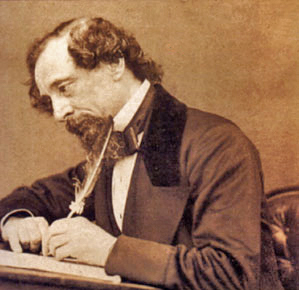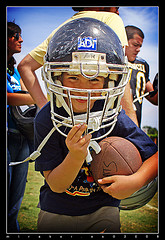1. Does Paco really like learning English?
Does Paco really like learning English?
Yes, he does. He didn't like studying English at the beginning, but now Paco is wholly aware of the importance of the English language for his world tour, he is starting to enjoy learning the Shakespeare's language.
But does Paco only learn English grammar? No, he doesn't. He learns a lot about English literature as well. He likes Charles Dickens's commitment with the society at the time.

|

|
|
Autor: Desconocido Wikimedia: Dominio público |
Autor: Desconocido Wikimedia: Dominio público. |
Can you recognize the interrogative structure of the Present Simple Tense in the text? Sure you can. By the way, notice the short answers pattern as well.
Have a look at these examples in context to learn about the Present Simple Interrogative forms:
What do you want to do in summer? Summer vacation activities.
If you still have any doubt about the formation of the Present Simple interrogative pattern, watch this video and pay attention to the interrogative sentences.
  
|
| By Lu. C. Commons. By John. C. Commons. By Miguel Giménez.CC. |
| |
affirmative | negative | questions |
|---|---|---|---|
| I | I play. | ||
| you | You help. | ||
| he | He does not answer. | ||
| she | Does she sing? | ||
| it | It rains. | ||
| we | Do we dream? | ||
| you | You do not read. | ||
| they | Do they work? |
Exercise on Present Simple forms: affirmative, negative and interrogative.
Write down the missing sentences.
Read the sentences below and fill in the missing words.
you playing draughts? No, I (TO LIKE)
Sonia her brother with English? Yes, she . (TO HELP)
Andrés and Alex football with Paco? Yes, they (TO PLAY)
Paco golf on t.v.? No, he (TO WATCH)
Short Answers: En esta sección vas a trabajar un poco más las interrogativas y sus respuestas. Recuerda que para las interrogativas del tipo yes/no, la respuesta corta se forma con el YES o NO, seguido del pronombre personal y el auxiliar (be, have got o do) en afirmativo o negativo según correponda.
|
Yes, pronombre personal + auxiliar en afirmativo (to be, have got,to do) No, pronombre personal + auxiliar en negativo (to be, have got, to do) |
- Do you like potatoes? (Te gustan las patatas)
Yes, I do (Sí, me gustan)
No, I don't (No, no me gustan)
- Are you tired? (¿Estáis cansados?)
Yes, we are (Sí, lo estamos)
No, we aren't (No, no lo estamos)
- Click here to gain practice with these jumbled sentences about the Present Simple Tense.
- To do an exercise on questions with interrogatives click here.
- Exercise to arrange the words to make questions in Present Simple.
Once you have learnt about the Present Simple interrogative form, we are going to see now the interrogative pattern in the Present Continuous Tense.